Major Power Relations
Your Present Location: PROGRAMS> Major Power Relations-

Upcoming China-US phase one agreement drives up yuan rate
The appreciation of the yuan reflects the positive news that China and the US are set to sign a widely expected phase one trade agreement, but in the long run, the currency's exchange rate depends on how the deal is implemented, a Chinese financial expert said on Monday. The offshore yuan strengthened to a five-month high, moving beyond 6.9 per US dollar.
2020-01-16 -
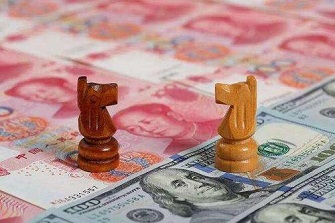
Correcting mistakes a good start for phase one trade deal
A US decision to remove its designation of China as a currency manipulator in an apparent goodwill gesture ahead of the looming phase one trade agreement was met with widespread criticism on Tuesday in China, where many argued that the label was a mistake in the first place.However, the US move also showed signs that Washington is returning to rationality instead of political bullying tactics in the wake of the phase one agreement that could be beneficial to China, the US and the global economy in the long run, some Chinese experts said.
2020-01-16 -

William Jones: Taking a broader look at the debate on 'human rights' in Xinjiang
The concept of human rights has a great variety of connotations about what it actually means in practice. The notion is generally accepted by all nations. But in different societies, with different forms of government and social interaction, human rights may take different forms, often as a result of cultural, social or political differences.The United States has often attempted to present itself as the "arbiter" of human rights.
2020-01-15 -
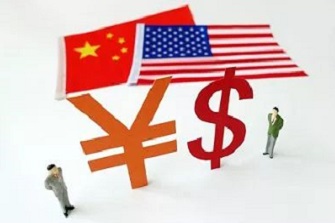
Levy reductions viewed as positive for Chinese, US stocks
China's plan to lower or eliminate import tariffs on a wide range of items, mostly consumer goods, will be a boon to both the Chinese and US stock markets, analysts said on Monday. The move, which comes as China and the US are on track to sign a phase one deal limiting their trade friction, is positive for listed companies in sectors that stand to benefit from the move - and to companies in general.China on Monday announced that duty rates on more than 850 consumer items, from frozen pork and avocados to orange juice and high-technology products, will be reduced or eliminated.
2020-01-13 -
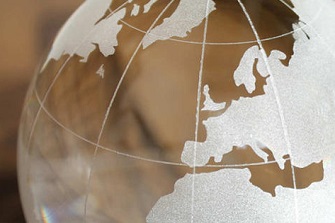
Liu Zongyi: Egalitarian security architecture can help stabilize South Asia
In 2019, there were major changes in the traditional and non-traditional security situation of South Asia. Tensions between India and Pakistan over Kashmir continued and the possibility of an armed clash remained quite high. The geostrategic confrontations in South Asia and the Indian Ocean region are intensifying.The situation in Afghanistan is deteriorating.Overall, the security situation in South Asia is getting worse, which does not bode well for the region's economic development. But there are mainly three possible solutions to improve the situation.
2020-01-13 -
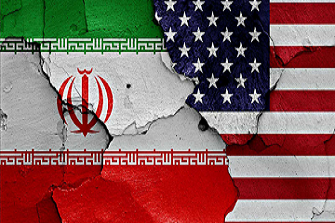
Trump's address shows US, Iran both calm
US President Donald Trump said at a press conference in Washington, DC, Wednesday that "No Americans were harmed" in the missile attacks by Iran. He didn't say the US will launch military retaliation, only that it will impose "additional punishing economic sanctions" on Iran.Trump's address showed that the US has already got what it wants, such as the death of a major hostile figure in the region, and no military retaliation being announced has also pacified Americans who are worried about a war.
2020-01-10 -
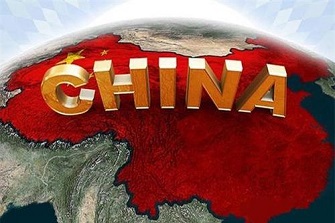
2020: A year of milestone significance for China
On New Year's Eve, Chinese President Xi Jinping delivered his annual speech, reviewing the country's accomplishments in 2019 and sending his wishes for 2020.President Xi called 2020 as "a year of milestone significance," as China is set to eliminate poverty, finish building a moderately prosperous society in all respects and realize its first centenary goal. China will remain open to the outside world and continue to join hands with countries across the globe to promote the construction of a community with a shared future for mankind.
2020-01-09 -
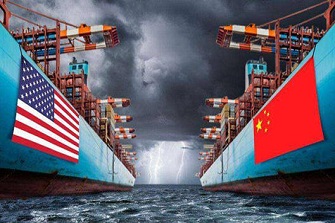
Zhao Minghao: Toward Philosophical Coexistence
China and the United States will sign a phase one trade deal this month, an important step forward in their attempts to ease tensions. Their trade negotiation teams have made great efforts to this end. Needless to say, responses to the agreement have been mixed, and there are some criticisms both in the United States and China. However, this only shows that the final agreement has a certain balance, and it definitely cannot satisfy everyone. The two sides have achieved a necessary compromise.
2020-01-08 -
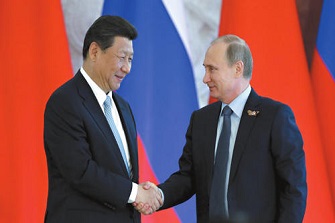
Huang Renwei: Where Are China-Russia Relations Heading?
2020-01-08 -
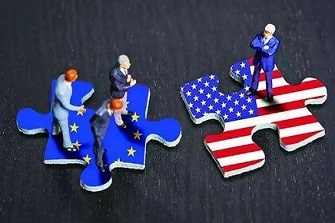
Europeans grow wary of their old partner
The European Union and the United States, which have long championed shared goals, have increasingly been drifting apart as evidenced by disputes over issues ranging from security to trade in recent years.Entering the new year, the tensions between the two powers are likely to continue, although their overlapping interests are seen as preventing any rapid decline in their relations.
2020-01-08 -
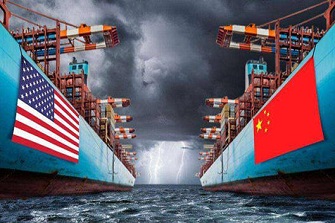
Zhao Minghao: Toward Philosophical Coexistence
China and the United States will sign a phase one trade deal this month, an important step forward in their attempts to ease tensions. Their trade negotiation teams have made great efforts to this end. Needless to say, responses to the agreement have been mixed, and there are some criticisms both in the United States and China. However, this only shows that the final agreement has a certain balance, and it definitely cannot satisfy everyone. The two sides have achieved a necessary compromise.
2020-01-08 -
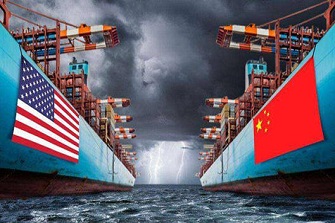
Zhao Minghao: Toward Philosophical Coexistence
China and the United States will sign a phase one trade deal this month, an important step forward in their attempts to ease tensions. Their trade negotiation teams have made great efforts to this end. Needless to say, responses to the agreement have been mixed, and there are some criticisms both in the United States and China. However, this only shows that the final agreement has a certain balance, and it definitely cannot satisfy everyone. The two sides have achieved a necessary compromise.
2020-01-08 -

Wang Wen: Global efforts needed to restrict US adventurism
An Iranian friend of mine asked me what I thought about the killing of Qasem Soleimani, commander of Iran's elite army Islamic Revolutionary Guard Corps by a US drone strike in Iraq the day after Soleimani's death. I answered without hesitation - this is an act of state terrorism. There was no trial, no Congress authorization, no public debate, and the US simply killed a senior official of a sovereign country by arbitrary use of force and accusations from its hegemonic discourse power.
2020-01-07 -
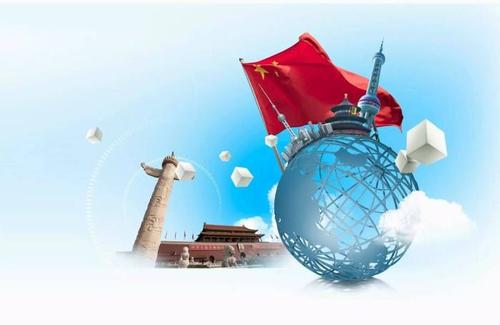
Xi makes nation's voice heard around the world
President's overseas visits bolster diplomatic efforts. Over the past year, President Xi Jinping traveled to 12 countries in Asia, Europe and South America during seven overseas trips.Under the leadership of President Xi Jinping, China remained committed to multilateralism and championed justice worldwide this year, as it strived to push forward major-country diplomacy with Chinese characteristics, according to officials and analysts.
2020-01-07 -
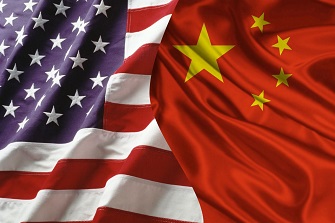
He Yafei: Major Power Competition and Cooperation
Only a few major powers exist at any given time in human history. In today’s world, probably the U.S. and China are truly major powers, followed by Russia, Japan, the European Union, India, Brazil, Turkey, Indonesia and others in different tiers. But it is the U.S.-China relationship that will primarily determine the future of the world.Competition is normal and cooperation is necessary for world peace and economic progress.Competition is normal and cooperation is necessary for world peace and economic progress.
2020-01-06 -
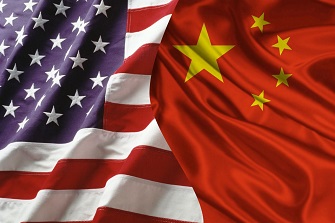
He Yafei: Major Power Competition and Cooperation
Only a few major powers exist at any given time in human history. In today’s world, probably the U.S. and China are truly major powers, followed by Russia, Japan, the European Union, India, Brazil, Turkey, Indonesia and others in different tiers. But it is the U.S.-China relationship that will primarily determine the future of the world.Competition is normal and cooperation is necessary for world peace and economic progress.Competition is normal and cooperation is necessary for world peace and economic progress.
2020-01-06 -
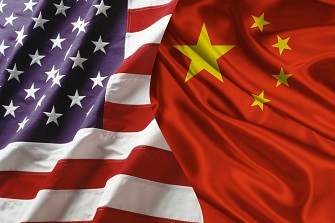
He Yafei: Major Power Competition and Cooperation
Only a few major powers exist at any given time in human history. In today’s world, probably the U.S. and China are truly major powers, followed by Russia, Japan, the European Union, India, Brazil, Turkey, Indonesia and others in different tiers. But it is the U.S.-China relationship that will primarily determine the future of the world.Competition is normal and cooperation is necessary for world peace and economic progress.Competition is normal and cooperation is necessary for world peace and economic progress.
2020-01-06 -
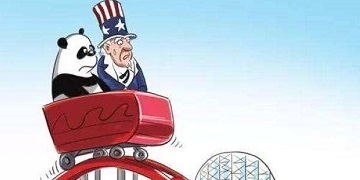
Ding Gang: China, US decoupling not a certainty in 2020
During the last night of 2019, when joyful people in the Big Apple cheered as the Times Square Ball dropped, they must be expecting the NASDAQ screen to display more exciting data in the new year. People in Beijing also don't know where China-US relations are heading, despite that the phase one trade deal seems to have been fixed. Many years from now, when people recall 2020 perhaps they will find that as people from both countries were striving for their own countries' development, they were getting close, rather than drifting apart.
2020-01-02 -
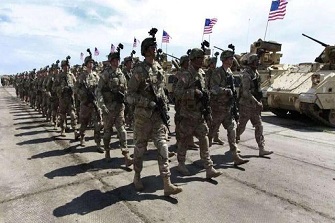
William Jones: Draw-down of U.S. forces in Africa & Mideast presages Pacific buildup
U.S. Secretary of Defense Mark Esper has not minced any words about his intent on reshaping U.S. force deployments in order to confront a "rising China" in the Asia-Pacific region, redeploying U.S. forces from Africa and the Middle East to the Asia-Pacific region.In addition to the military redeployment, the U.S. Congress has launched a campaign to revive the strategies of the Cold War against China in an attempt to divide or to cripple that country.
2019-12-30 -
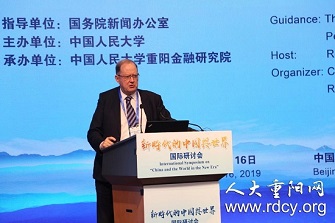
John Ross: US policy on China won’t change
With deep seated problems apparent throughout the world, and increasing instability and uncertainties, will there be a change in fundamental US policy toward China? We have very good news that China and the US have reached a conclusion on a phase one trade deal, which is excellent. But I suppose the answer is "No." The US won't change its fundamental policy, whether Trump is reelected or not. If he is reelected, there obviously won't be fundamental changes. If he is not reelected, the candidates of the Democratic Party are also expected to hold hard line foreign policy. Elizabeth Warren even criticized Trump for not having enough take in US arm of forces.
2019-12-27
























































































 京公网安备 11010802037854号
京公网安备 11010802037854号





